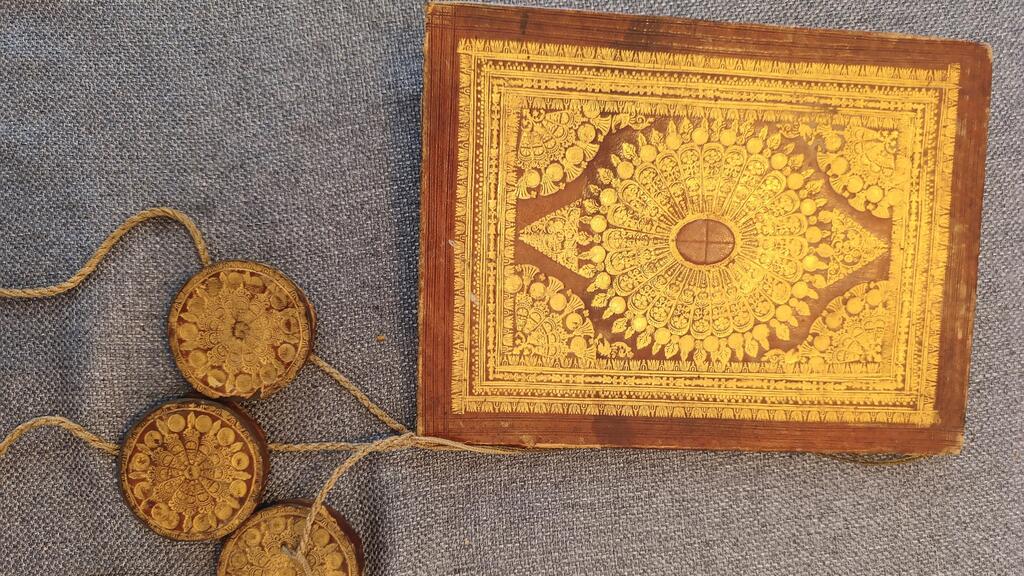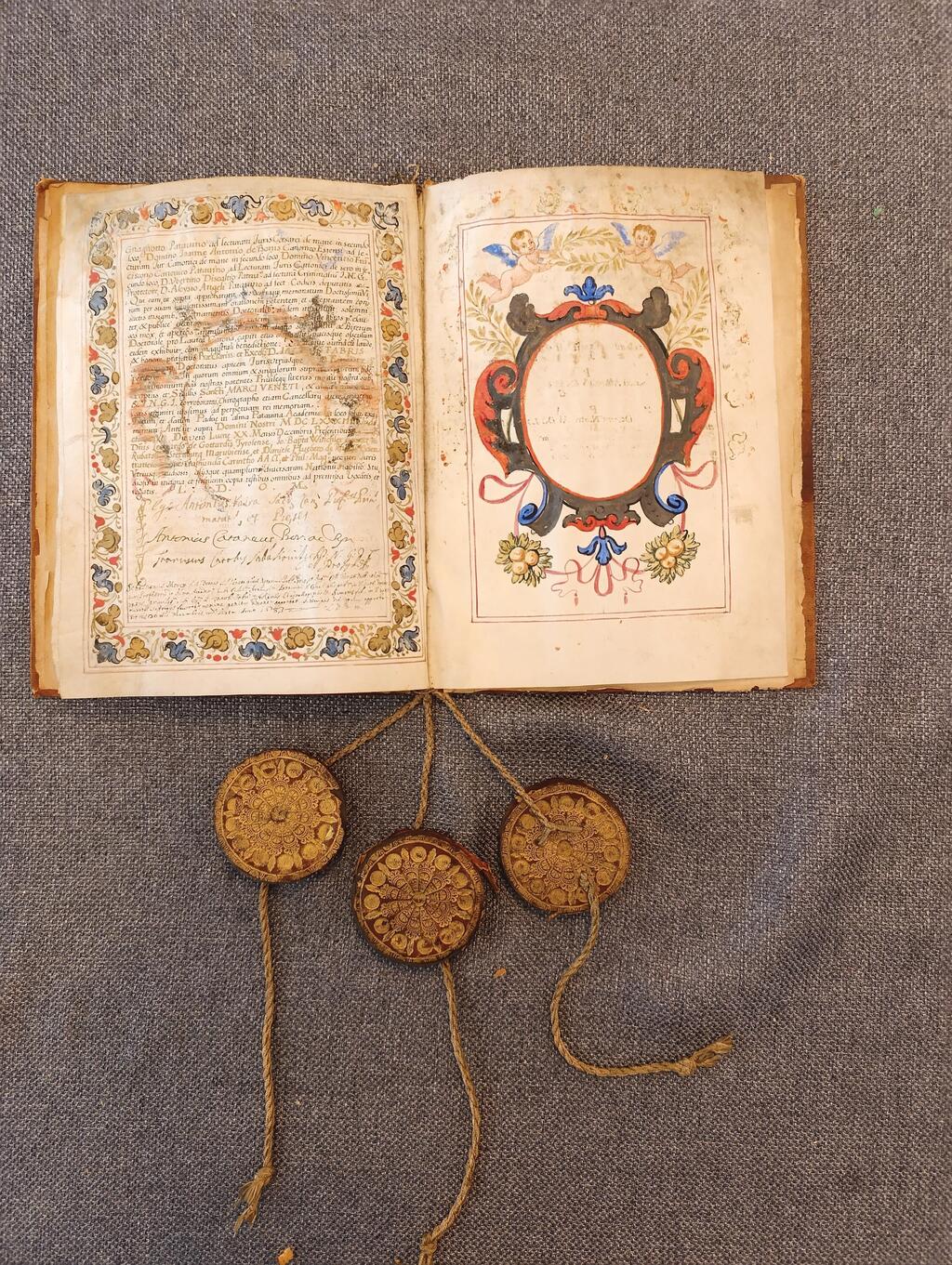Getting your Trinity Audio player ready...
A remarkable 1683 doctorate certificate, crafted on an ornate parchment and belonging to Jacobus Fabris, who studied law at the University of Venice, has been donated to Bar-Ilan University’s collection. This rare artifact stands out due to its artistic calligraphy in both regular and gold ink, as well as a portrait of the young doctor. The delicate decorations and the meticulous investment in both the certificate and its binding are exceptionally impressive. The document will be preserved alongside other books and manuscripts in a vault with constant humidity and temperature control, ensuring protection from pests, insects, and damage due to moisture and heat.
"This item was in my father's house, who passed away this year. It is a doctorate certificate from the University of Venice, one of the oldest universities in the world. My father inherited it from his grandfather, who owned an antique shop near St. Mark's Square, the iconic landmark of Venice," says Professor Emanuel Dalla Torre, a quantum computing researcher at Bar-Ilan University. Born in Milan (from where he immigrated to Israel after finishing high school), he donated the certificate to Bar-Ilan University's museum collection.
Professor Dalla Torre's grandfather also received a doctorate from the University of Venice (and later served as a professor, doctor, and researcher in the city), making this ancient find particularly valuable to him. The certificate features three seals hanging for authentication. "The transition to printing in the mid-15th century caused revolutions in the world. Thanks to printing, books became cheaper, providing mass access to books and education.
This knowledge revolution indirectly led to the development and dissemination of many fields such as religions, science, ideologies, and technology. The world of manuscripts became less relevant for disseminating and preserving knowledge but preserved ancient traditions. Therefore, when they wanted to give importance to a document like a doctorate certificate, important real estate documents, or personal contracts like a 'ketubah' (Jewish marriage contract) between a husband and wife, they tried to maintain the honor and grandeur by preparing a handwritten document.
The illustrations in this and other certificates also influenced Jewish art, as can be compared to Italian 'ketubah' illustrations from that period," explained David Ben-Na'im, curator of the Judaism, manuscripts, and rare books collection at Bar-Ilan University.



